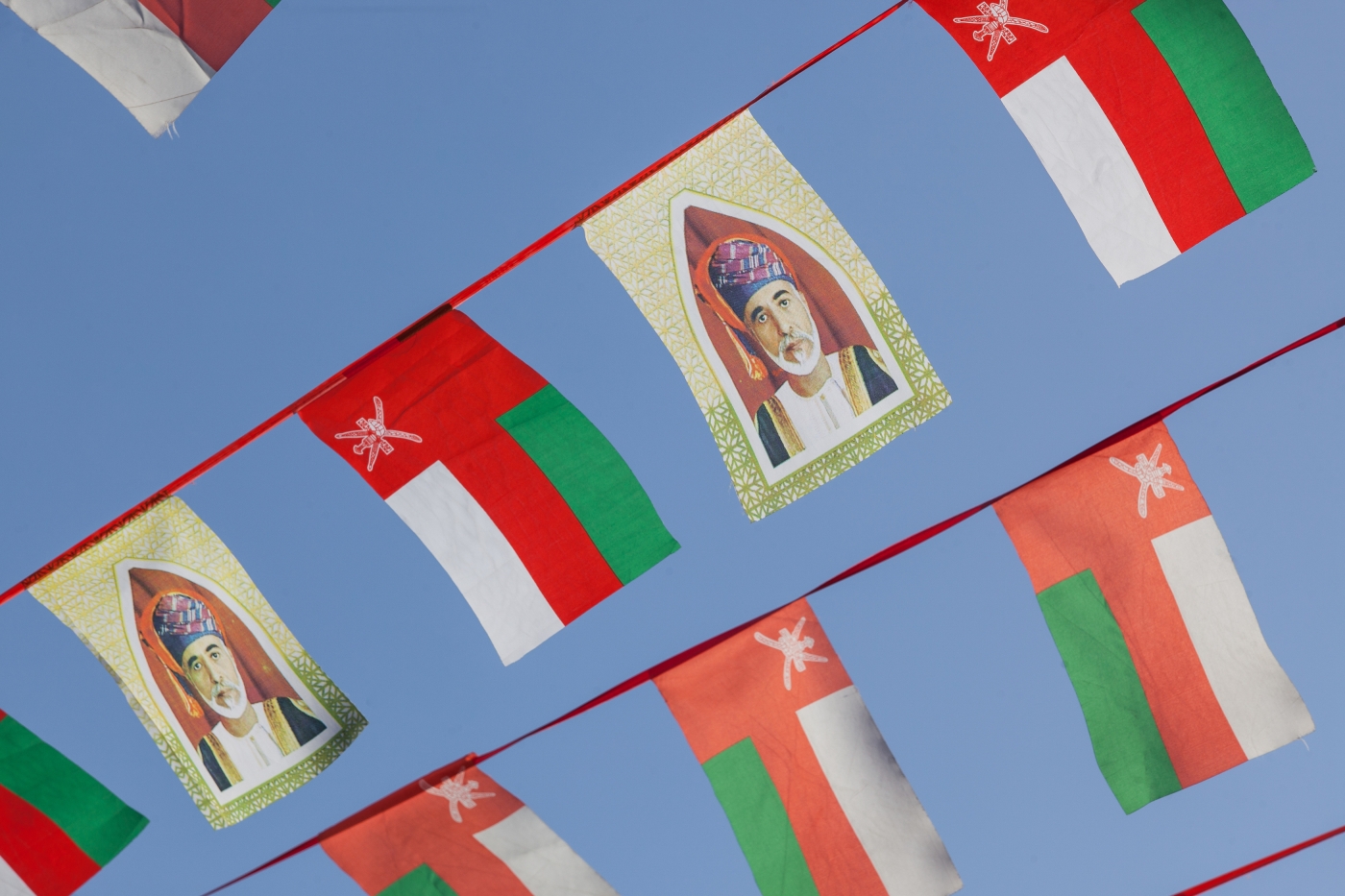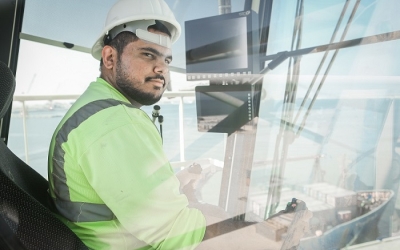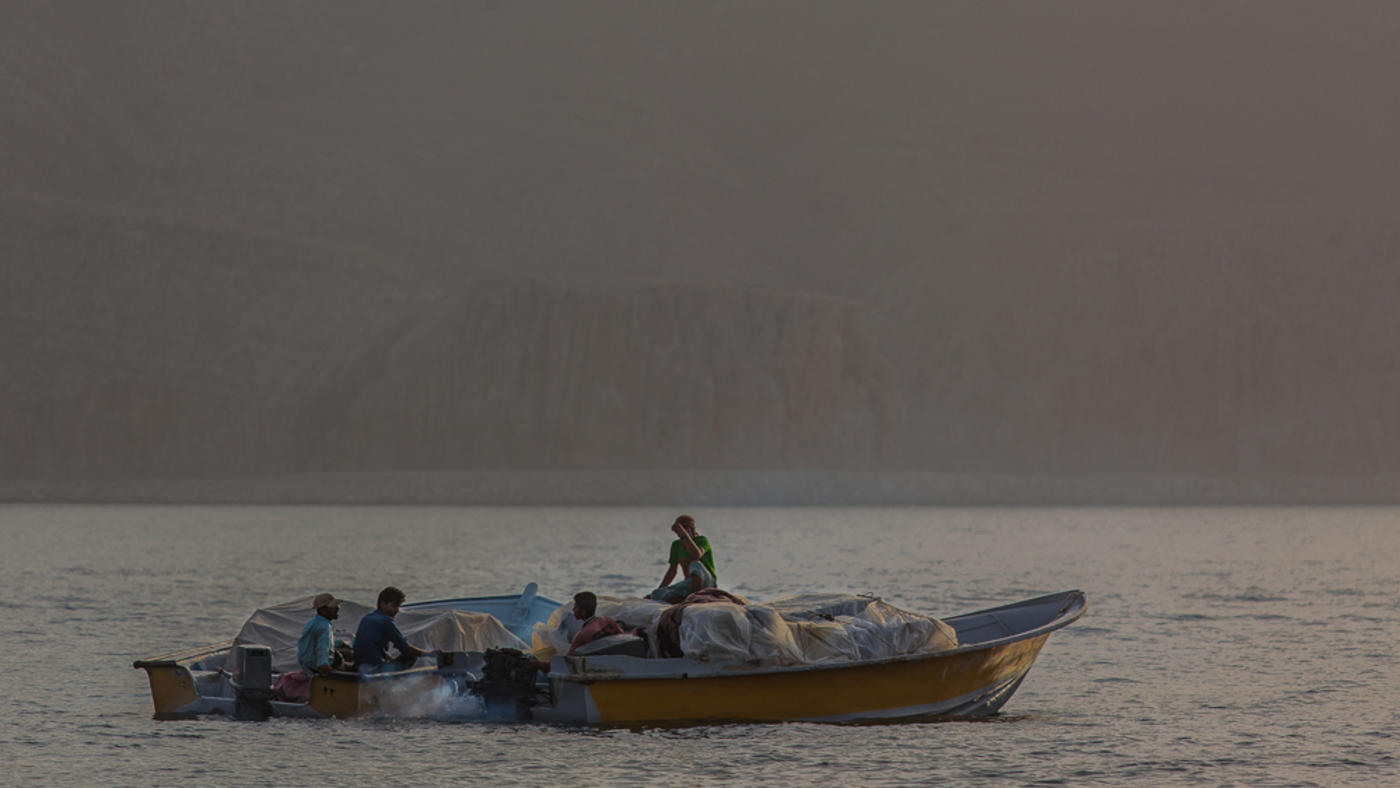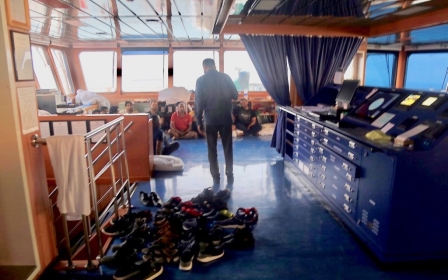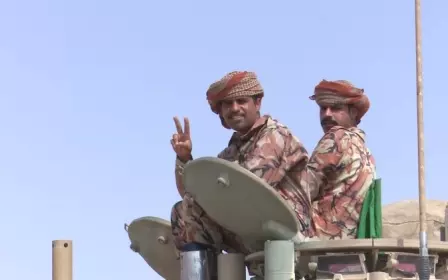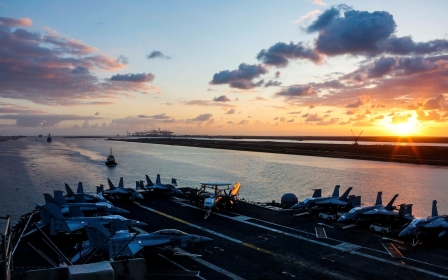'Everyone will lose': Fearing new Gulf war, Oman doubles down on diplomacy
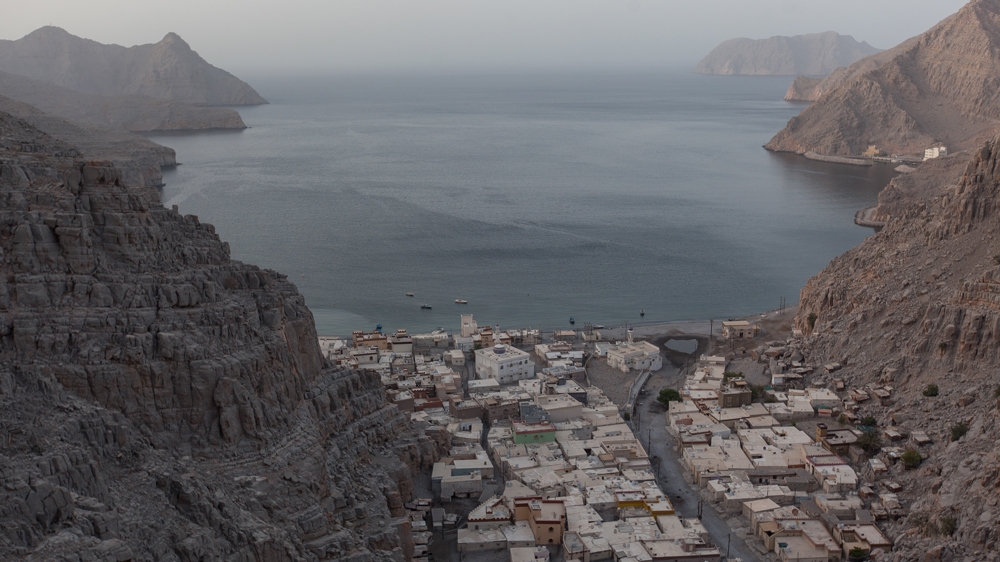
Throughout its modern history, Oman has traditionally advocated dialogue, cooperation and regional stability.
Following a series of strikes on oil facilities in Saudi Arabia earlier this month, which have been widely blamed on Iran, despite a claim of responsibility by Yemen's Houthi rebels, the Sultanate has reaffirmed the signature look of its foreign policy: to be a facilitator.
"There are many voices which have said that the resolution of this crisis is through the use of diplomacy," foreign minister Yusuf bin Alawi said in an interview with Al-Monitor on Saturday, having previously told the Times of Oman that the attacks were an "unnecessary escalation".
"Both sides, or even all the sides, have one way or another expressed their wish to engage in some sort of diplomacy - diplomacy on the platform or diplomacy behind [closed] doors. And those are good things.
New MEE newsletter: Jerusalem Dispatch
Sign up to get the latest insights and analysis on Israel-Palestine, alongside Turkey Unpacked and other MEE newsletters
"Oman will assist. We are not playing the role of mediator. What we choose for ourselves is the role of facilitator."
According to local journalist Fahad al-Mukrashi, an easing of tensions between Riyadh and its allies on one side, and Tehran on the other, is something that all in the country would welcome.
“All Omanis wish these tensions to end, enough is enough. It is really saddening, what is the point of war? Everyone would lose,” Mukrashi told Middle East Eye, stressing that Oman had traditionally acted to mediate in regional disputes.
“This is Oman’s role, and I feel very proud of this.”
Oman’s official apparatus has persistently refused to comment publicly on the strained relationship between its larger Gulf neighbours in a bid to preserve the country’s neutrality.
Yet, Houchang Hassan-Yari, head of the Department of Political Sciences at Sultan Qaboos University, told MEE that “many” within the government agree, in private, with the view that Iran instigated the latest attacks.
Indeed, in informal circles, sharp comments are not uncommon and Hassan-Yari also notes that a majority of his students judge policies led in recent years throughout the Gulf by Saudi Arabia and the United Arab Emirates (UAE) as too aggressive.
“They believe that those countries pursue a destabilisation policy towards Oman,” he says.
Omanis interviewed by MEE tend to share the perspective that the conflict in neighbouring Yemen, where a Saudi-led coalition is fighting Houthi rebels supported by Iran, is fuelling regional tensions, which would ease if the conflict came to an end.
“If you throw stones at your neighbours, they will react and act against you,” one man said.
Dealing with elephants
Located on the eastern coast of the Arabian Sea, with a long land border with Saudi Arabia and the UAE, and a coastline that includes territory facing Iran across the Strait of Hormuz, Oman has generally refused to side with one axis or another. (An exception was during the 1980s Iran-Iraq war when Sultan Qaboos, the country's ruler since 1970, planned to allow Iraqi forces to take off from Oman to carry out assaults on Iran’s naval bases.)
“If a war breaks out, Oman would find itself in a difficult situation, squeezed between an Iran/Gulf war and the conflict in Yemen,” comments Hassan-Yari. But beyond security concerns, many Omanis also question the country’s future positioning in a troubled region.
'When you deal with elephants, you have to be smart, or else they step on you'
- Omani analyst
Speaking to MEE on the condition of anonymity, an Omani analyst who worked for the Council of Ministers believes Oman needs to "act carefully" amid soaring regional tensions.
“When you deal with elephants, you have to be smart, or else they step on you,” he said.
According to the analyst, the Sultanate realises "very well" that "Iran is dangerous, as well as Saudi Arabia does".
He believes "both to have hands everywhere" in reference to political, economic and religious influences exerted across the Middle East by the two countries.
Therefore, Oman’s policy attempts to respect everyone's interests. In 2016, the Sultanate joined a Saudi-led alliance of Muslim countries to fight terrorism, an initiative that was primarily targeted at Islamic State which then still controlled territory in Syria and Iraq.
Oman's close relations with Iran date back to the 1970s when Tehran helped Muscat to defeat a rebellion in the southern governorate of Dhofar. Even after the Iranian Revolution, the two countries continued to enjoy burgeoning trade, security, diplomatic and social ties and since 2014, joint military exercises have been held in the Strait of Hormuz.
Furthermore, US officials and their Iranian counterparts held secret talks in Muscat ahead of the 2015 Iranian nuclear deal, strengthening the Sultanate’s position as a facilitator.
'With us or against us'
But some see the current crisis as a threat to the unique diplomatic space between Iran and Saudi Arabia which Oman has carefully cultivated for itself over decades.
“We live in an era where there is so much polarisation: you are with us or against us,” Omani academic Abdullah Baabood told MEE.
In recent years, Oman refused to join the coalition fighting the Houthis in Yemen, the only member of the Gulf Cooperation Council to do so, with even Qatar initially joining the Saudi-led effort in 2015.
Muscat then stayed out of a blockade imposed on Qatar by Saudi Arabia and its allies in 2017 whilst it doubled its non-oil exports to Doha and maintained close ties with Iran, thus angering the Riyadh-Abu Dhabi axis.
Furthermore, Oman was accused in 2016 of turning a blind eye to arms smuggled via its territory to the Houthis. Oman’s Ministry of Foreign Affairs denied the allegations.
Baabood claims that Saudi Arabia and the UAE try to “demonise Oman in front of international partners” by pushing a narrative that the country is "not with us but against us".
The diplomatic assault is accompanied by economic pressure.
According to Baabood, many Omanis believe the UAE has purposefully delayed the planned creation of a UAE-Oman rail network in order to constrain the development of Duqm, the Arabian Sea port which Oman is seeking to develop as a regional alternative to the UAE's Jebel Ali.
Meanwhile, Oman has recently grown increasingly reliant on borrowing, with its debt tripling to 50 percent of GDP.
“Oman is paying a high price for its neutrality, but thinks it is worth it,” the academic said.
Looming succession
In the context of the looming succession of 78-year-old Sultan Qaboos, the longest-serving monarch in the Arab world, voices in the Sultanate fear that Saudi Arabia and the UAE could exert pressure on his successor to abandon Oman’s neutral posture and align with their anti-Iran rhetoric.
Baabood expects attempts to manipulate the Sultanate’s foreign policy to fail since this unique positioning finds its source in a subtle blend of socio-politico-cultural factors deeply ingrained in the Omani identity, exemplified by Sultan Qaboos’ views and decisions.
And beyond questions of principle, Oman has no other choice, analysts say.
To safeguard Oman’s stability and privileged status on the international scene, its political neutrality is key.
Hassan-Yari says that Oman’s foreign policy has become its "best protection" against dominant powers in the region at a time of increasing polarisation.
“If any pressure ever happens, it will come from the United Arab Emirates,” concludes the Omani analyst, who worked for Oman’s Council of Ministers.
Past events suggest his fears may be legitimate: in 2011, the Sultanate ‘"uncovered a spying network belonging to the state security apparatus of the United Arab Emirates, targeting the ruling regime in Oman". Six years later, operatives working for the UAE hacked into the iPhone of Oman’s head of foreign affairs.
Talking to MEE, Sultan Kaabi, an Omani professor of communication, points out that social relations between Omani and Emirati families have been intertwined for centuries, and urges decision makers to be on guard to ensure that such ties are not "demolished".
“We belong to each other,” he said.
Middle East Eye delivers independent and unrivalled coverage and analysis of the Middle East, North Africa and beyond. To learn more about republishing this content and the associated fees, please fill out this form. More about MEE can be found here.


